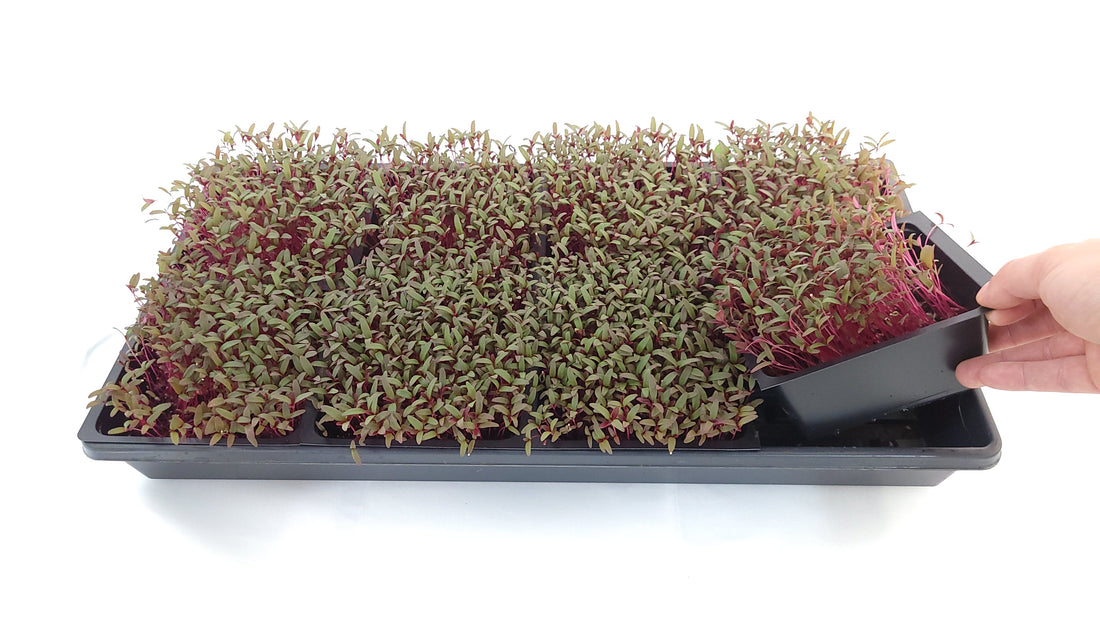Now, let’s get one thing straight. I’m not here to sell you a miracle cure. Hair loss is a complex issue, driven by genetics, stress, diet, and overall health. But what if I told you that something as unassuming as a sprouted seed could play a significant role in keeping your hair on your head where it belongs? It’s not just about what you put on your hair; it’s about what you put in your body.
Nutrient Density in a Tiny Package
Microgreens are like nature’s multivitamins, concentrated little bundles of nutrition. They’re harvested at the stage where they’re most nutrient-dense, containing up to 40 times the vitamins and minerals of their mature counterparts. These include vitamins A, C, and E, all of which are crucial for hair health.
Vitamin A is essential for the production of sebum, the natural oil that keeps your scalp moisturized. Without enough of it, your scalp can become dry and irritated, leading to hair loss. Vitamin C, on the other hand, is a powerful antioxidant that helps protect hair follicles from damage by free radicals. It also boosts collagen production, which strengthens hair strands and prevents breakage. And let’s not forget vitamin E, which enhances blood circulation to the scalp, ensuring that your hair follicles get the nutrients they need to thrive.
The Role of Antioxidants
Hair loss can often be traced back to oxidative stress—an imbalance between free radicals and antioxidants in your body. When free radicals outnumber antioxidants, they damage cells, including those in your hair follicles. This is where microgreens come in. These tiny plants are rich in antioxidants like polyphenols and flavonoids, which neutralize free radicals and protect your cells from damage.
In particular, microgreens like broccoli, red cabbage, and cilantro are powerhouses of these antioxidants. Regular consumption of these greens can help reduce oxidative stress, thereby slowing down the hair loss process and promoting healthier hair growth.
Iron and Zinc: The Unsung Heroes
Let’s talk minerals. Iron and zinc are two key players in maintaining healthy hair. Iron helps your red blood cells carry oxygen to your hair follicles, and a deficiency in iron is a common cause of hair loss, especially in women. Zinc, on the other hand, plays a crucial role in hair tissue growth and repair. It also helps keep the oil glands around your hair follicles working properly.
Microgreens like spinach and arugula are excellent sources of these minerals. By incorporating them into your diet, you’re not just adding a burst of flavor to your meals—you’re giving your body the tools it needs to keep your hair strong and healthy.
Protein for the Win
Hair is made of a protein called keratin, so it’s no surprise that getting enough protein in your diet is vital for hair health. Microgreens, particularly those from legumes like lentils and chickpeas, are rich in plant-based proteins. These proteins provide the building blocks your body needs to produce keratin and maintain the structure of your hair.
But there’s more to the story. These proteins are also packed with amino acids like biotin, which is well-known for its role in hair growth. Biotin helps produce keratin and is essential for maintaining the infrastructure of the hair, skin, and nails. So, by munching on these microgreens, you’re directly supporting the health of your hair from the inside out.
A Simple Step Toward Better Hair Health
In a world full of expensive treatments and chemical-laden products, it’s refreshing to remember that sometimes the best solutions come straight from the earth. Microgreens offer a simple, natural way to support hair health and potentially prevent hair loss. They’re easy to grow, easy to incorporate into your meals, and most importantly, they’re a whole food, meaning your body can absorb and use their nutrients effectively.
So, next time you’re at the market or in your garden, don’t overlook these little powerhouses. A handful of microgreens might just be the simplest, most effective step you can take towards keeping your hair healthy and strong. After all, true health doesn’t come from a bottle—it comes from the soil, and the food we grow from it.
